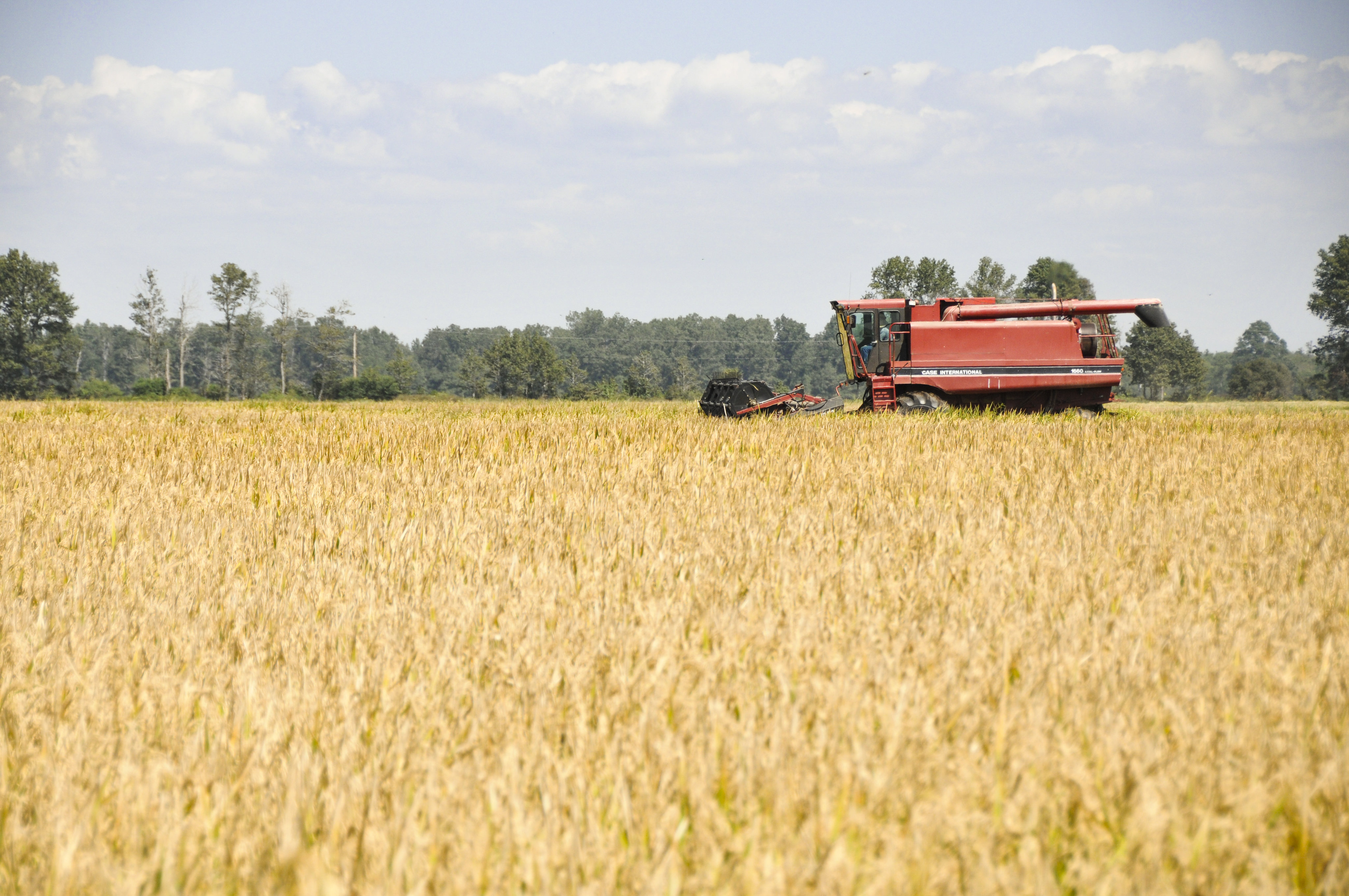New apprenticeship program opens doors for aspiring farmers
By Nick Kordsmeier
U of A System Division of Agriculture
Fast facts
- New farm apprenticeship program in northwest Arkansas begins in 2020
- Mentor farms to provide hands-on experience for those considering farming as a career
- Register online at bit.ly/AAES-FarmerApprenticeship
(653 words)
(Newsrooms, with art at: https://flic.kr/p/2hApDW6)
FAYETTEVILLE, Ark. – Aspiring farmers can learn the ins and outs of farming in a new on-farm apprenticeship program beginning January 2020.

The University of Arkansas System Division of Agriculture is now accepting applications for a unique learning opportunity aimed at individuals considering farming as a career. This farmer apprenticeship program, managed by the Center for Farm and Food System Entrepreneurship, gives future farmers a first-hand look at farm life, said Heather Friedrich, program manager in the horticulture department.
The CFFSE is a multi-disciplinary partnership operated through the division’s research arm, the Arkansas Agricultural Experiment Station. The apprenticeship program is key to CFFSE’s mission to strengthen the food and farming system through experiential learning opportunities, Friedrich said.
The program matches future farmers with successful, full-time-farming mentors for a 10-month to two-year program. It will combine classroom learning with hands-on work on successful farms, Friedrich said.
Friedrich said the farm apprenticeship program is designed for individuals who have some experience growing food crops but need additional training before starting a farm business of their own.
“We’re looking for people who are seriously contemplating food production for local and regional markets as a profession,” Friedrich said. “Ideally, those coming into the program will have some experience in food production, either from other farms, backyard gardening or education.”
Participants will begin in a classroom setting, building a foundation of basic farming skills and knowledge. Depending on individual goals and information gathered during the application process, Friedrich said, each apprentice applicant will be matched with one or more potential farm mentors for an initial interview. Before coming to a final agreement, farm mentors and apprentices may choose to have an on-farm workday to test out their working relationship.
“One of the best things about this program is the mentorship opportunity,” Friedrich said. “Our apprentices work alongside experienced farmers for up to two years. That’s a great opportunity to build a strong relationship with the host farmer that can continue for years to come,” she said.
Each on-farm experience is different, and apprentices should expect to work closely with their farm host to determine the exact details of employment, Friedrich said. Details may include living arrangements, expected work hours, and payment. Farm placement will typically begin in late winter, but the exact date will depend on the needs of each mentor.
Melissa Millsap with the Red Barn Farm in Bentonville, Ark., is serving as one of the mentors for the incoming class of apprentices.
“As a farmer, I know we need more farms. I also know that it is very difficult to gain real-world experience of owning and operating a farm through a classroom,” Millsap said. “I want people who have the passion to farm to have the opportunity to really know what they are looking at as a lifestyle, a career.”
“The heart of the program is the experiential learning that happens on a working farm,” Friedrich said.
Apprentices may work long, irregular hours typical of farming, and will be expected to participate in all classroom sessions and contribute weekly blog posts, she said.
“Apprentices will be working hard physically but should also be asking questions, observing, being actively engaged in understanding the farming system in which they are placed so that they may one day operate their own farm,” Friedrich said.
Those interested can learn more and apply online at the following link: bit.ly/AAES-FarmerApprenticeship
“There is a lot of untapped potential in our local and regional food system in northwest Arkansas,” Friedrich said. “We need more farmers to sustain our thriving local foods movement.”
Applications are due by Dec. 15, 2019. If accepted, a program fee of $285 per year will be due to pay for program education and administration.
Please direct questions about the program to Heather Friedrich at heatherf@uark.edu.
To learn more about Division of Agriculture research, visit the Arkansas Agricultural Experiment Station website: https://aaes.uark.edu. Follow us on Twitter at @ArkAgResearch and Instagram at ArkAgResearch.
About the Division of Agriculture
The University of Arkansas System Division of Agriculture’s mission is to strengthen agriculture, communities, and families by connecting trusted research to the adoption of best practices. Through the Agricultural Experiment Station and the Cooperative Extension Service, the Division of Agriculture conducts research and extension work within the nation’s historic land grant education system.
The Division of Agriculture is one of 20 entities within the University of Arkansas System. It has offices in all 75 counties in Arkansas and faculty on five system campuses.
Pursuant to 7 CFR § 15.3, the University of Arkansas System Division of Agriculture offers all its Extension and Research programs and services (including employment) without regard to race, color, sex, national origin, religion, age, disability, marital or veteran status, genetic information, sexual preference, pregnancy or any other legally protected status, and is an equal opportunity institution.
Media Contact: Nick Kordsmeier
Interim Asst. Director of Communications
Arkansas Agricultural Experiment Station
U of A System Division of Agriculture
(479) 575-5647
nkordsme@uark.edu